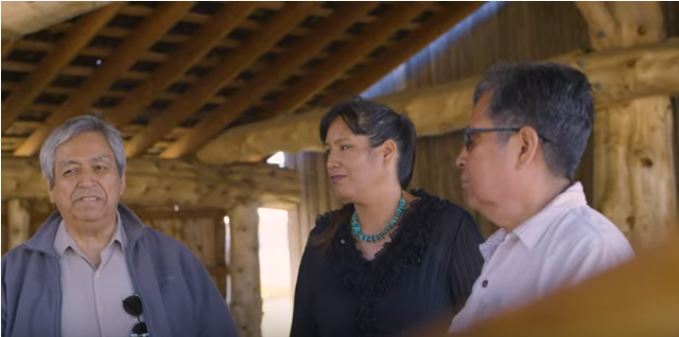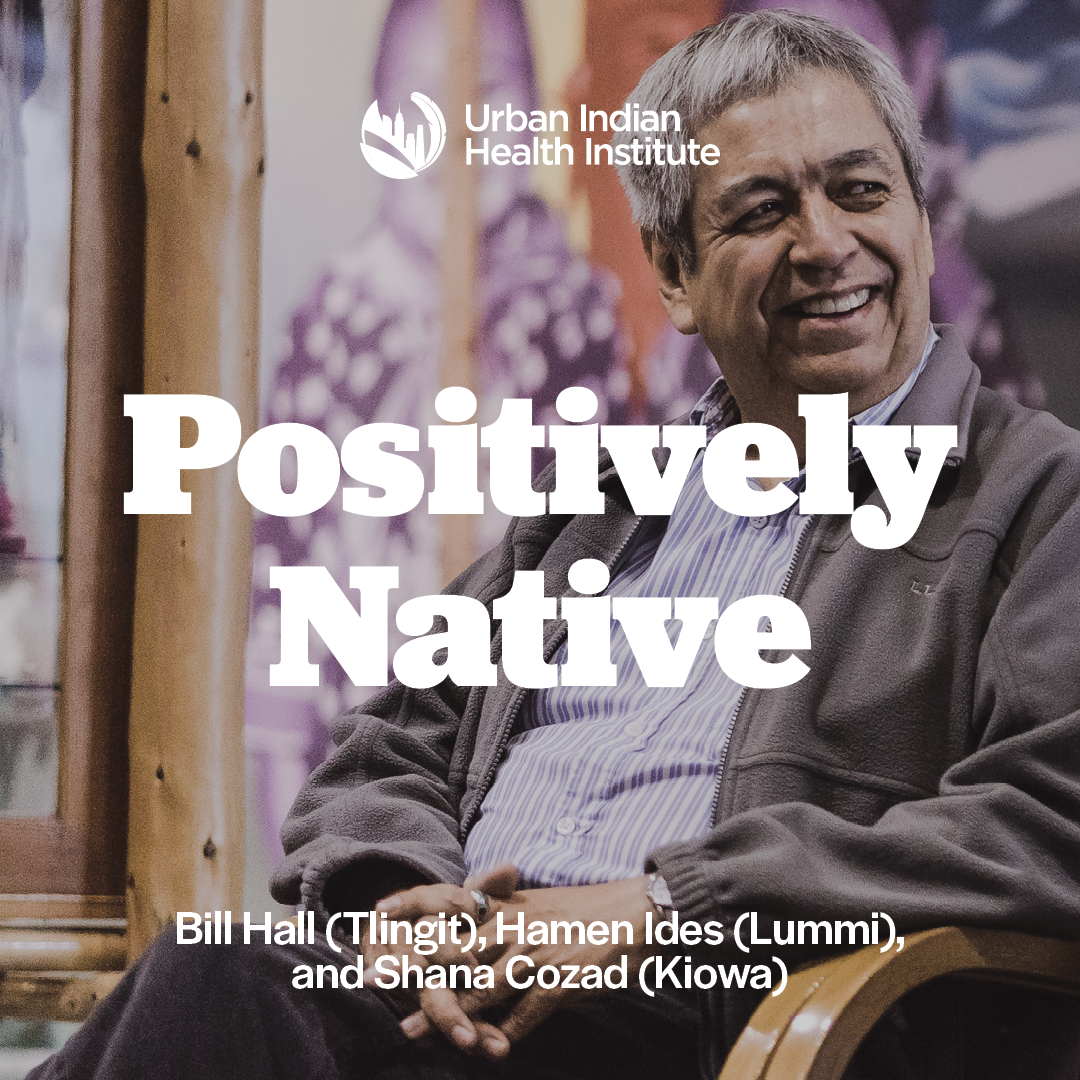It is estimated that 3,000 American Indians and Alaska Natives are living with Human Immunodeficiency Virus (HIV).(1) The Indian Health Service reported that only 21% of urban Native patients had been tested for HIV at Urban Indian Organizations (UIOs) at some point in their lives.(2)
In 2017, Urban Indian Health Institute (UIHI) conducted a survey in Seattle to learn about the knowledge, attitudes, and beliefs regarding HIV and AIDS prevention in urban Native communities. Among those surveyed, 48% thought HIV was a problem in their community, 41% knew about pre-exposure prophylaxis (PrEP)—a pill taken once a day to prevent HIV infection, 39% felt they could not talk openly about HIV in their community, and only 12% had been tested in the past 12 months.
To work within our community to break down the stigma around HIV and AIDS, UIHI partnered with Cardea Services to film a series of educational videos for healthcare providers about HIV and AIDS and sexual health in Native communities. These videos will help healthcare providers understand how to best care for their Native patients when it comes to HIV and AIDS and sexual health. To the same end, UIHI also created a short film, “Positively Native,” that talks about the stigma around HIV and AIDS in Native communities.
References
Urban Indian Health Institute offers technical assistance around a variety of HIV topics, including accessing data, interpreting data, and electing HIV educational materials for both patients and providers.
If you have any questions, please contact the HIV and STI Team at hiv@uihi.org.
Urban Indian HIV and AIDS Resource Library
Culturally attuned HIV education resources for patients and healthcare professionals
We’ve curated a library of culturally attuned HIV education resources for both patients and healthcare professionals. The selected resources empower and encourage patients to get tested for HIV, get on PrEP, and end HIV stigma. They also bolster the knowledge and skills of healthcare professionals to provide quality HIV prevention and treatment.
Included in the library are posters, fact sheets, videos, toolkits, and learning modules. The library is a living resource hub, meaning that UIHI will continue to update it with new resources.
HIV Basics
HIV (human immunodeficiency virus) is the virus that weakens the body’s immune system and, if left untreated, can lead to AIDS (acquired immunodeficiency syndrome). Learn the basics about HIV from an Indigenous-informed perspective in the materials below. Feel free to download, watch the videos, and share these materials with your patients and community.
Contact us if you would like printed versions of any of our UIHI-branded materials, and we can have them sent to your clinic.
Resources for Relatives (Patients)
HIV Poster Series: Know your HIV Status
HIV Prevention: We R Native. We R Proud.
Under the “Print Materials” tab is a set of digital posters from the “Native. LGBT. Proud.” and “Native. Tested. Proud” campaigns out of Northwest Portland Area Indian Health Board to de-stigmatize HIV and HIV testing among LGBTQ2S people
Resources for Providers
HIV and American Indian/Alaska Native People
HIV Control Plan Template
Prioritizing Early Detection of Sexually Transmitted Infections
Online learning modules from UIHI and Cardea Services to help prepare healthcare professionals to provide optimal HIV prevention, screening, and treatment in any primary care setting while addressing the unique cultural needs of American Indians/Alaska Natives:
- Module 1: Culturally Proficient Sexual Health Care for People of all Genders and Sexual Orientations
- Module 2: Sexual Health Assessment
- Module 3: Talking with Patients about HIV
- Module 4: Biomedical Prevention of HIV (ART, PEP, and PrEP)
Provider Toolkit
HIV Care and Sexual Assessment for American Indian and Alaska Native Patients Provider Toolkit
Ending HIV Stigma
Stigma related to HIV remains one of the biggest barriers to American Indians/Alaska Natives receiving HIV prevention and treatment services. Ending HIV stigma and empowering communities most impacted is a necessary component to ending the HIV epidemic in Indian Country. Below are resources to normalize talking about HIV and encourage HIV prevention and treatment.
Resources for Relatives (Patients)
HIV Poster Series: Stand Up to HIV Stigma

Culturally attuned resources for HIV/AIDS education
The Stigma Surrounding HIV Needs to End
An animated public service announcement from Northwest Portland Area Indian Health Board on ending HIV stigma and empowering one another for taking control of our health.
Native VOICES
A 23-part video series toolkit from WeRNative including one (1) full 23-minute film and twenty-two (22) additional clips on sexual health and education for Native youth, by Native youth.
A compilation of nine (9) culturally attuned audio-recordings and public service announcements of Native people speaking up against HIV stigma and why getting tested helps both you and your community.
Resources for Providers
“Positively Native” Facilitation Guide
“Positively Native” Discussion Presentation
“Positively Native” Clips: Partner Toolkit
HIV Social Media Engagement
A major tool to ending the HIV epidemic and HIV stigma in Indian Country in the 21st century is through social media. Here are some resources on how to develop your social media strategy to stop the spread of HIV and HIV stigma.
Resources for Relatives (Patients)
A set of digital posters from the “Native. Tested. Proud.” and “Act Against AIDS” campaigns with example social media copy text.
Resources for Providers
Virtual Engagement Toolkit
Developing a Social Media Strategy to Combat the HIV Epidemic in Indian Country
HIV Clinical and Policy Guidance
The toolkits and briefs below explore the ways in which Urban Indian Organizations, tribal clinics, and other Native-serving health organizations can strengthen the systems needed to incorporate HIV policy into medical practice, social norms, and community culture. It is meant to provide tools, models, and guidance to ending HIV and HIV stigma in your community.
Resources for Providers
A Toolkit for Advancing the Uptake and Use of PrEP in Indian Country
Compassion, Action, and Healing: Working with Injection Drug Users in Native Communities
Clinician’s Guide: Working with Native Americans Living with HIV
Issue Brief: Native Gay Men and Two-Spirit People HIV/AIDS and Viral Hepatitis Programs and Services
Tribal HIV/STD Advocacy Kit & Policy Guide
Destigmatizing Health Care: Trauma-Informed Language for Treating People Who Use Drugs
HIV Prevention and PrEP for Native Communities
Learn about the basics of PrEP, the daily prescription pill that significantly reduces the risk of getting HIV. This section also includes resources and information needed to incorporate PrEP in a culturally informed way at Native-serving clinics. It is meant to provide information, language, and conversation starters to introduce PrEP to communities and/or clinics.
Resources for Relatives (Patients)
HIV Poster Series: PrEP, the Daily Pill to Prevent HIV
An animated video conversation between a patient and doctor about PrEP
An animated information video about PrEP

